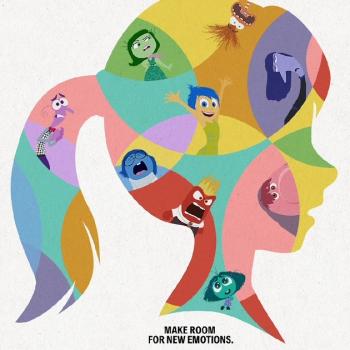Nagarjuna lived in the first century. He’s sometimes called a Second Buddha because his impact was so significant. He’s considered a leading figure in multiple branches of the Mahayana Buddhist tradition. He shared the Prajnaparamita Sutras and considered a foundational figure. He was an incredibly prolific teacher and writer.
I’m writing about a text called “Nagarjuna’s Letter to a Friend.” It’s a letter he wrote to a king with whom he was friendly. Because it was written to a king and not to a monk or group of monks, it contains instructions for laypeople. This text, which isn’t very long, serves as an outline for the basics of the Mahayana Buddhist tradition. It’s for this reason that we’re using it to teach our Introduction to the Mahayana class at the Rime Buddhist Center.
I just thought I’d do some writings exploring it here.
So, Nagarjuna opens the main part of this letter filled with advice by talking about six things that Buddhas have explained we should keep in mind.
He wrote:
“Six things there are the Buddhas have explained,
And all their virtues you must keep in mind:
The Buddha, Dharma, Sangha, bounteous acts,
And moral laws and gods – each one recall.”
I’m one of those people that feels weird when things like gods are mentioned in Buddhist texts. Maybe you are too. We’ll set that aside for now.
The Buddha, the Dharma, and the Sangha are called the three jewels. These are the three things we rely upon as Buddhists and they’re sort of a foundation upon which the whole tradition is built. As Nagarjuna is expounding the Mahayana tradition, this new way of looking at things, he’s also letting us know that the foundation is the same as in older forms of Buddhism.
In a ceremony called “taking refuge” we declare our commitment to the three jewels. This is how a person formally becomes a Buddhist.
The Buddha is the historical figure who founded the tradition. His name was Siddhartha Gautama. He realized his true nature and spread what he had discovered. He’s sometimes called Shakyamuni. His tribe were called the Shakyas. Shakyamuni means the wise one from the Shakyas, essentially.
He’s someone to look up to and try to emulate. The Buddha was a person like us and we can all work toward attaining our true nature like he did. So, it’s really an aspirational and powerful thing to reflect on him as someone to look up to. The Buddha also represents the true nature within you, which we call Buddha Nature. It’s your innate potential for awakening. The Buddha was an ordinary person like us and he awakened. This means we can too.
The Dharma is the teachings. The words of the Buddha are called the Dharma. We rely on the Dharma as well. This isn’t just about an individual, but about what he shared as well. The Dharma is often used to indicate other teachings from the tradition as well, it’s not limited to the words of the Buddha. Because Buddhism is bigger than one person.
The Sangha is the community. Originally the Sangha was seen as monks and nuns in the tradition, since then it has expanded to include all Buddhists. It’s the people we practice with. Buddhism is meant to be practiced in a group with others. That’s not to say that it can’t be practiced on your own, but engaging with other people that have the same goals as you is immensely helpful.
Bounteousness is another way of saying not being miserly, or practicing generosity. He’s telling the king to be giving, to not be so attached to material things. As his audience is a king, I’m sure he’s got a lot of wealth and he may be attached to that wealth. We’re attached to things too and we need to practice generosity. Generosity helps us with our attachment to things and to ourselves. Selfishness gets in our way and generosity is our antidote to that. When we realize the impermanent nature of things, being attached doesn’t make as much sense.
Moral Laws refers to self-discipline. The Buddha taught that a life of virtue is a good way to live. If we live a life where we’re giving into our temptations all the time, that doesn’t serve us well. It creates disappointment and disharmony. The ethical teachings in Buddhism are fundamental. A virtuous person has an easier time calming the mind and working towards awakening.
Gods doesn’t seem to me to belong on this list. Sometimes celestial beings are talked about and honored in Buddhism. I don’t like the word ‘god’ being applied to them because I think god has much greater connotations and implies more significance than there is. My sense of this is that Nagarjuna is reminding the king to respect some of the folk religions his people practice, but also there was lots of superstition in those days, ie if you don’t honor harvest spirits, you may not have a good harvest. In all honesty celestial beings are an aspect of Buddhism that doesn’t really speak to me much. We can spend some time reflecting and ask ourselves why Nagarjuna thought this was important enough to include in the list of six things to keep in mind.
So, more to come later. If you like this writing and have an interest in this text, you can join us in “Introduction to the Mahayana” at the Rime Buddhist Center. We have in person and online options. Here are the details:
Facilitator: Lama Matthew Palden Gocha & Daniel Scharpenburg
Date: 6 sessions beginning on November 22, 2023
Time: 7:45 – 9:00 pm
Class Fee: $30
Text: Nāgārjuna’s Letter to a Friend – Get it on Amazon or at the Rime Center gift shop.











